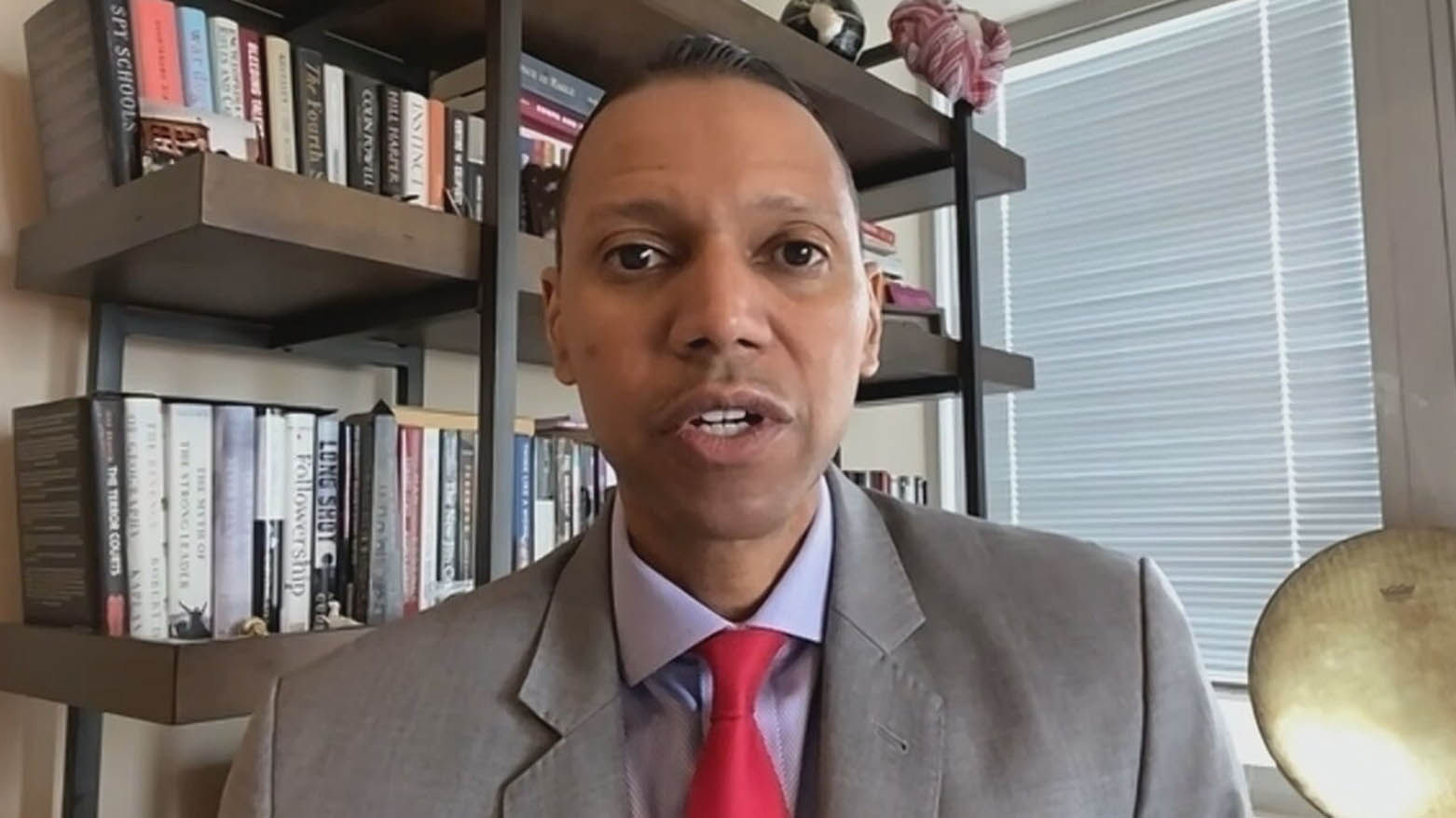APIKUR Spokesperson Welcomes Historic Tripartite Oil Export Agreement
Caggins emphasized the role of leadership from Kurdistan Region Prime Minister Masrour Barzani and Iraqi Prime Minister Mohammed Shia’ al-Sudani in reaching the deal, acknowledging that encouragement from the United States also contributed to the breakthrough.

ERBIL (Kurdistan24) – Col. Myles B. Caggins III, spokesperson for the Association of the Petroleum Industry of Kurdistan (APIKUR), on Thursday hailed the tripartite agreement reached between the Kurdistan Regional Government (KRG), the Federal Government of Iraq, and international oil companies to resume exports through the Iraq–Turkey pipeline.
“This is an important day. I want to confirm for all viewers that the agreement has been signed,” Caggins told Kurdistan24. “The agreement ensures that oil exports will resume within the next three days. This is what the companies I represent have been waiting for.”
Under the agreement, the KRG is expected to export 230,000 barrels per day through the Iraq–Turkey pipeline, in addition to 50,000 barrels for local consumption. The State Oil Marketing Organization (SOMO) will oversee exports on behalf of the federal government in coordination with the KRG and the participating companies.
Caggins emphasized the role of leadership from Kurdistan Region Prime Minister Masrour Barzani and Iraqi Prime Minister Mohammed Shia’ al-Sudani in reaching the deal, acknowledging that encouragement from the United States also contributed to the breakthrough.
The interim agreement, valid until December 31, sets compensation at $1 per barrel for participating companies. Long-term contracts are expected to follow, guided by assessments from independent consultant Wood Mackenzie, which will calculate production and transportation costs using technical metering systems at production sites.
A key feature of the deal is the establishment of an escrow account at an international bank, where the Iraqi Ministry of Finance will deposit $16 per exported barrel. Companies will be able to withdraw funds to cover costs, with each withdrawal requiring signatures from all three parties, ensuring transparency and accountability.
APIKUR, which represents eight international oil companies employing over 2,000 workers in Kurdistan—81% of them local—said its members are ready to restart exports on Saturday at 6 a.m.
Caggins highlighted that since 2005, international investment in Kurdistan has contributed to the growth of cities, roads, and infrastructure. He added that resuming exports will not only generate vital revenues for both Erbil and Baghdad but also strengthen global energy security by adding supply to the Mediterranean market.
Looking to the future, Caggins underlined the potential of the Kurdistan Region’s natural gas resources, noting that member companies have plans to expand production to help ease Iraq’s electricity shortages and deepen energy cooperation with Baghdad.
“This agreement is a win for everyone: Baghdad wins, Erbil wins, international companies win, and above all, the people of Iraq win,” he concluded.
On Thursday, Iraqi Prime Minister al-Sudani announced a breakthrough agreement that will allow crude oil exports from the Kurdistan Region to resume through the Iraq–Turkey pipeline.
Also, in a statement on the social media platform X, Kurdistan Region Prime Minister Barzani said the tripartite agreement is the “result of tireless efforts and months of negotiation by teams on all sides.”
Meanwhile, the KRG Ministry of Natural Resources announced that oil exports from the Kurdistan Region will resume within the next 48 hours.
Read More: KRG Ministry of Natural Resources Announces Oil Exports to Resume Within 48 Hours
The agreement follows months of complex negotiations after oil exports from the Kurdistan Region were halted in March 2023, when an international arbitration ruling required Baghdad’s approval for shipments through the Ceyhan pipeline. The stoppage cut off a vital revenue source for both governments, exacerbating fiscal pressures and limiting Iraq’s influence on global energy markets.
The resumption of oil exports is expected to ease economic pressures, attract new investment, and reaffirm Iraq’s role as a reliable supplier in international energy markets.